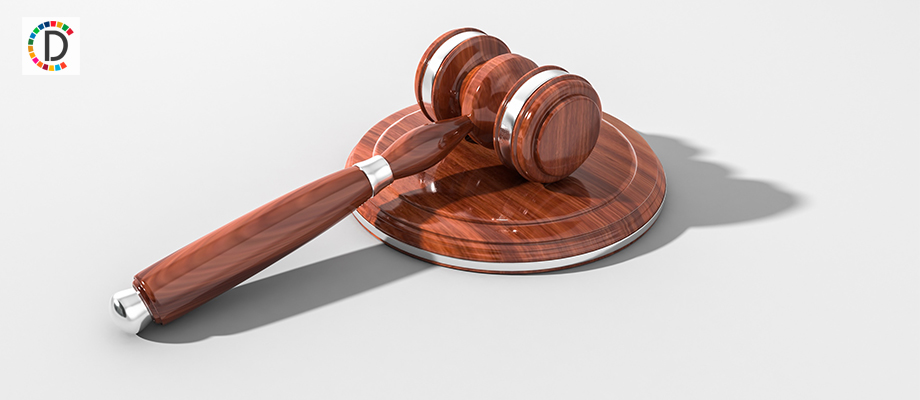SC gives Centre six weeks to reply to notice on PIL against 'snooping'

- Country:
- India
The Supreme Court on Monday issued notice to the Centre on a plea challenging the government's notification authorising 10 central agencies to intercept, monitor and decrypt any computer system.
A bench comprising Chief Justice Ranjan Gogoi and justices Ashok Bhushan and S K Kaul sought the Centre's response within six weeks and said it would hear arguments on the interim stay after the parties are served the notices.
"Heard the petitioner appearing in person and the counsels for the petitioners and perused the relevant material. Permission to appear and argue in person is granted.
"Issue notice in all the writ petitions. Issue notice also on the prayer of interim relief/application(s) for stay, returnable in six weeks. Interim prayer(s) will be considered after service of notice is complete," the bench said.
The court was hearing a batch of petitions, including those filed by advocates Manohar Lal Sharma and Amit Sahni, challenging the government's December 20 notification.
According to the government's notification, 10 central probe and snoop agencies are now empowered under the Information Technology (IT) Act for computer interception and analysis, Home Ministry officials had said.
The petitioners have claimed that the notification was "unconstitutional" and the "blanket surveillance" bad in law.
The 10 agencies notified under the new order are the Intelligence Bureau, Narcotics Control Bureau, Enforcement Directorate, the Central Board of Direct Taxes (for Income Tax Department), Directorate of Revenue Intelligence, Central Bureau of Investigation, National Investigation Agency, the Research and Analysis Wing, Directorate of Signal Intelligence (in service areas of J-K, North East and Assam) and Delhi Police commissioner.
Sahni in his plea, filed through advocate Preeti Singh, claimed that the December 20 notification was liable to be set aside according to the mandate of the right to privacy judgment delivered by a nine-judge Constitution bench of the top court.
"The order dated December 20, 2018 is a blanket order and the same is against public at large, without any reasoning and the same is bad in law, therefore the same is liable to be set aside," he said in his plea.
The order was "undemocratic and an assault on fundamental rights of the citizens of India," Sahni added.
The petition alleged that every citizen of the country cannot be suspected as a criminal and the object of passing the order was to have a "surveillance country or something else".
Sahni alleged that the government wished to snoop on every citizen. This, he said, was highly unjustified and contrary to the Constitution of India and the law laid down by the Supreme Court.
Manohar Lal Sharma sought to prohibit the agencies from initiating any criminal proceedings, inquiry or investigation against anybody under the provisions of the IT Act based on the notification.
His plea claimed the notification was issued "to find political opponent, thinker and speaker to control entire country under dictatorship to win coming general election under an undisclosed emergency as well as slavery which cannot be permitted within the Constitution of India".
Sharma in his plea alleged that the Ministry of Home Affairs' "blanket surveillance order must be tested against fundamental right to privacy".
According to the notification, the state has the right to access every communication, computer and mobile and "to use it to protect political interest and object of the present executive political party", Sharma said in his petition.
He referred to the Universal Declaration of Human Rights resolution adopted by the United Nations General Assembly in 1948 and said the government was legally bound to comply and protect the right to privacy since India was one of the 48 signatories.
In his plea, Sahni claimed that the December 20 order has "wider ramification" and the government cannot be permitted to "abuse its power to check every citizen under the garb of the said order".
The government's move set off a political storm with the opposition accusing the Centre of trying to create a "surveillance state".
However, the central government had said the rules for intercepting and monitoring computer data were framed in 2009 when the Congress-led UPA was in power and its new order only notified the designated authority which can carry out such action.
(This story has not been edited by Devdiscourse staff and is auto-generated from a syndicated feed.)
ALSO READ
Several people injured in drone attack on industrial sites in Russia's Tatarstan - agencies
Now, AAP can't call probe agencies' action against scams vendetta politics: BJP on Sanjay Singh's bail
Now, AAP can't call probe agencies' action against scams vendetta politics: BJP on Sanjay Singh's bail
Now, AAP can't call probe agencies' action against scams vendetta politics: BJP on Sanjay Singh's bail
TMC accuses BJP of misusing central probe agencies










